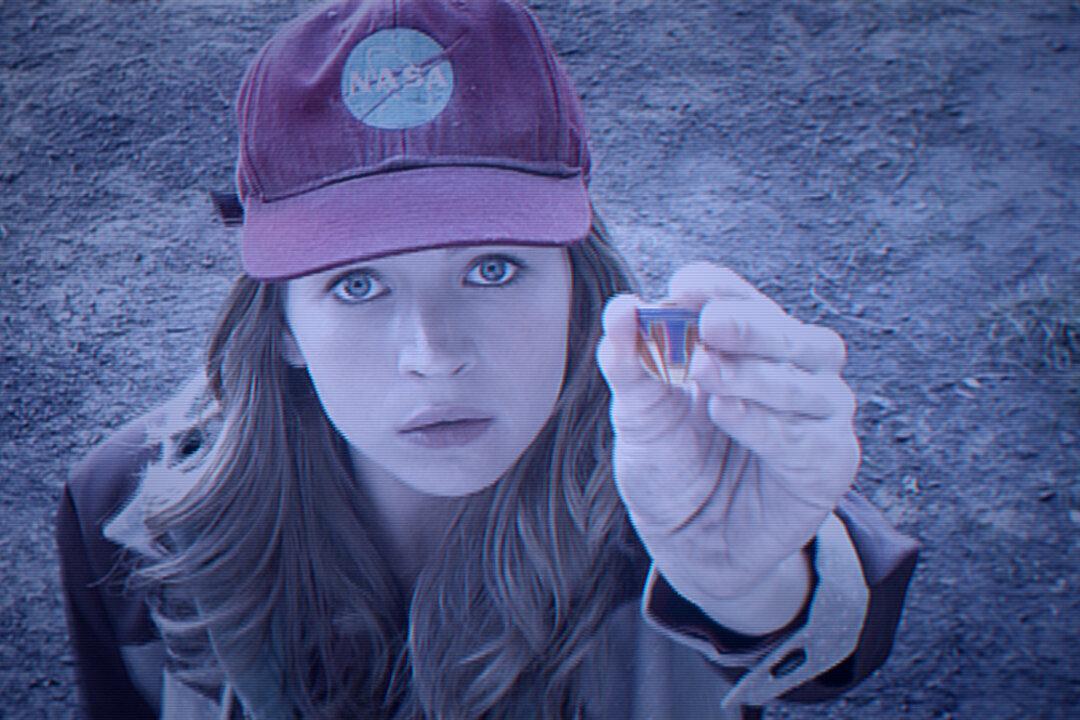The first casualty of the summer movie season is Disney’s “Tomorrowland,” directed by Brad Bird. Though it narrowly squeaked into first place at the box office its opening weekend (barely beating out a sequel, “Pitch Perfect 2”), each succeeding week has seen its fortunes decline dramatically. (As of May 31, the film has grossed a worldwide total of $133.7 million against a budget of $190 million.)
This is a great shame since “Tomorrowland” is not only an enjoyable and beguiling romp, but it is also the only summer blockbuster in recent memory that actively asks something of its audience, and even questions the nature of what a summer blockbuster means.
“Tomorrowland” confounded expectations by relying heavily on theme and message to propel the story, with special effects eye-candy as only a secondary concern. More important, unlike the vast majority of summer films, “Tomorrowland” seeks to actually say something, and the message is not one that contemporary audiences want to hear.
Synopsis
In brief, “Tomorrowland” concerns Casey Newton (Britt Robertson), an extremely bright young woman chomping at the bit to use her intelligence to make the world a better place. Her father (Tim McGraw) is an engineer at NASA who will soon be out of a job as the space agency rapidly moves away from the early 1960s promise of actually doing space exploration.
After being arrested for trying to halt the shutdown of a NASA launch site, Casey finds a pin that, whenever she touches it, shows her visions of a glossy, high-tech Utopia—Tomorrowland. As she seeks to learn more about this Buck Rogers-inspired paradise, she meets a mysterious child, Athena (Raffey Cassidy), who leads her to Frank Walker (George Clooney), a former boy genius who first entered Tomorrowland himself when he brought his homemade rocket pack to the 1964 World’s Fair. The trio face dangers from both our world and the world of Tomorrowland as they try to find their way back in, and seek to pull our own world back from the brink of self-destruction.
Dividing the Critics
As of this writing, “Tomorrowland” has a 50/50 rating among top critics on that most basic tool for movie buffs, RottenTomatoes.com. This is not surprising, considering how it seems that no two critics see the same movie. “Tomorrowland” is a critical and cultural Rorschach test—tell me what you think of it, and your aesthetics are laid bare.
For example, Charles Paul Freund at Reason.com has condemned the film as an Ayn Rand fable for Objectivism. In this reading, only the elite are allowed to enter Tomorrowland, and the fruits of its discoveries are not for the masses.
(Barry Hertz at the Globe and Mail wrote of director Brad Bird: “Unless you’re preternaturally gifted—unless you’re part of the 0.01 percent of us who are truly special, whose self-made superiority is undeniable—the writer-director behind ‘Tomorrowland’ can’t be bothered.”)
Other critics, John Nolte at Brietbart.com for example, dismiss “Tomorrowland” as a liberal save-the-earth-from-global-warming screed, too mired in science fantasy to even enjoy the label of science fiction.
Some perceive the future-vision of “Tomorrowland” as based on a white-male aesthetic, and is thus automatically suspect; others that the inclusive, multinational vision it presents merely a liberal sop. In short, responses to “Tomorrowland” are all over the map.
Even the critical arm of the science fiction community seems immune to the messages of “Tomorrowland.” Critical assessments in tightly cloistered fan communities are often driven by agendas or allegiances that make little sense to the uninitiated, but even by that yardstick, “Tomorrowland” has taken a licking.
For example, in an insight of staggering vacuity on the science fiction news blog io9.com, Charlie Jane Anders dismisses the film as so much “Baby-Boomer nostalgia at its most dreary,” and opines that the film ultimately “winds up feeling so much like you’re listening to a cranky rant about how things were so much better 50 years ago.”
Well … yes, that’s really the point. And it is a point that the viewer takes con amore, or not at all.
What’s Happened to Us?
“Tomorrowland” asks—directly, to the viewer’s face—why were we more optimistic 50 years ago, when we had less, than we are now when we have more? (At one point, Clooney’s character says, “The future looked different when I was a kid.”) And why, more importantly, are we glutting ourselves on apocalyptic rubbish like “Mad Max: Fury Road?” And why does our current world look so drab, so colorless, so … ugly?

